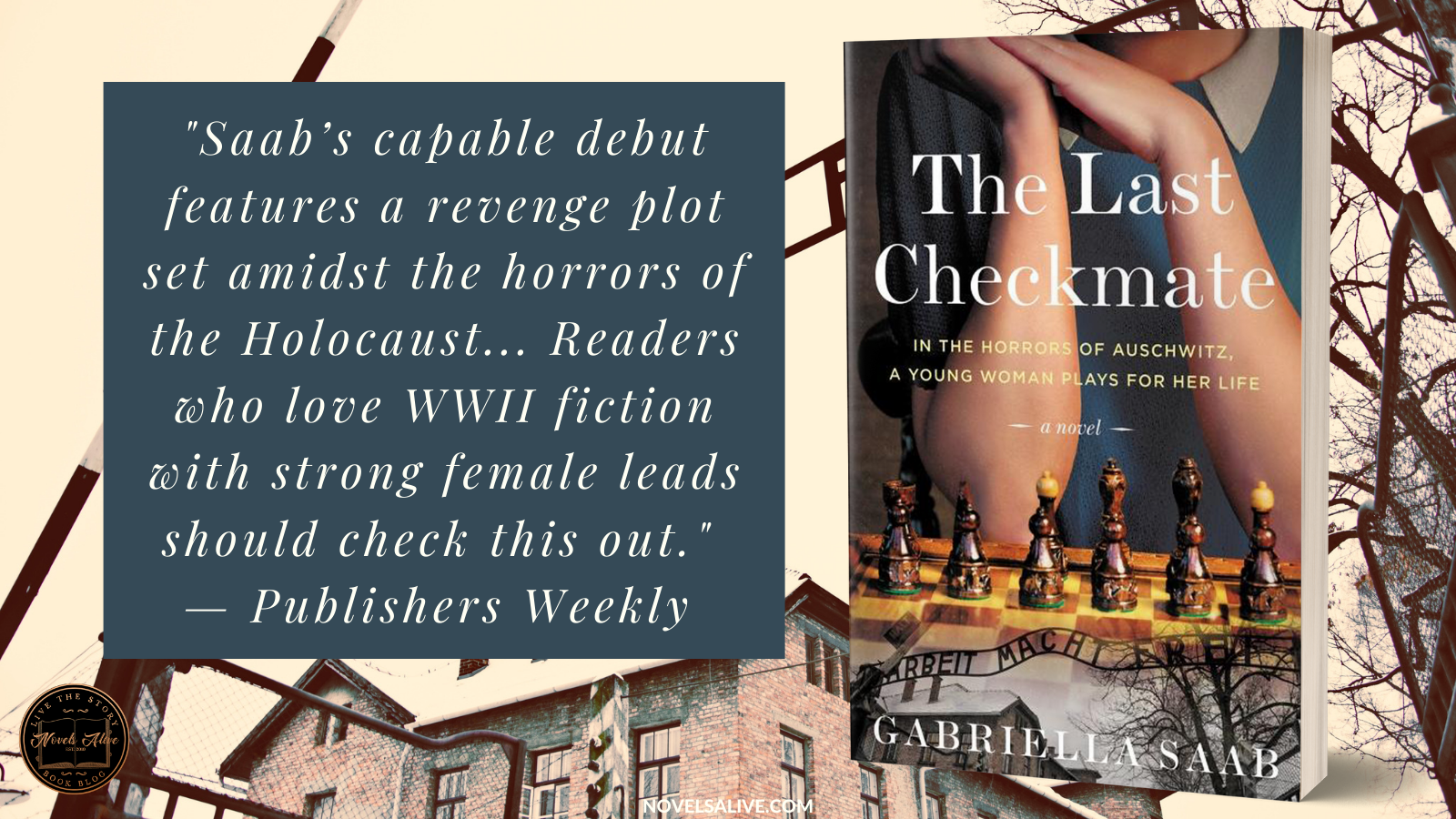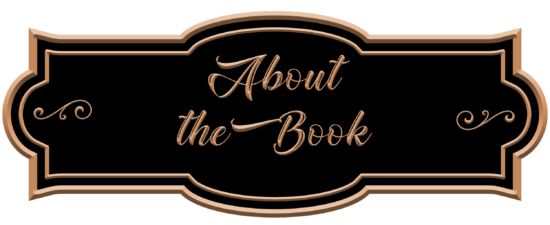 As writers, if there’s one thing we’re used to, it’s various forms of rejection. Rejections from agents, editors, publishers, bad reviews, being excluded from lists—it happens to all of us. It can be tough to swallow; you might be surrounded by glowing reviews and positive feedback, but one poor remark will still sting. And when your book is published, suddenly A LOT of people have access to your work, which means more positive feedback—and more rejections. When I found out my debut, THE LAST CHECKMATE, was going to be published, I realized that I would soon be facing wide and varied opinions about my work, so I started a practice that suddenly became the best thing I did for my writing career: I kept track of my achievements.
As writers, if there’s one thing we’re used to, it’s various forms of rejection. Rejections from agents, editors, publishers, bad reviews, being excluded from lists—it happens to all of us. It can be tough to swallow; you might be surrounded by glowing reviews and positive feedback, but one poor remark will still sting. And when your book is published, suddenly A LOT of people have access to your work, which means more positive feedback—and more rejections. When I found out my debut, THE LAST CHECKMATE, was going to be published, I realized that I would soon be facing wide and varied opinions about my work, so I started a practice that suddenly became the best thing I did for my writing career: I kept track of my achievements.
Why?
I had always celebrated my big accomplishments, of course, such as signing with my literary agent, but I wanted to be more proactive about it, especially in anticipation of the subjectivity of publishing. Even though I have thick skin when it comes to rejection and criticism, nobody enjoys getting that kind of feedback. Negativity can take a toll on your mental health, and even if you do your best to protect yourself by avoiding reviews, you will inevitably come across something upsetting at some point. I liked the idea of being able to turn to a collection of kind words, uplifting thoughts, and encouragement whenever I was feeling down, worried, sad over a poor review, or simply wanting to remind myself of how much I had to be thankful for.
Besides, this is debut year! Even though every book’s publication is important and every writing milestone is special, you only debut once. This year comes with so many firsts—first trade reviews, first advanced reader copies, all sorts of things! I thought this would be a wonderful way to remember the journey and remain grateful.
How?
Now that I knew what I wanted to do, how did I want to do it? Fortunately, I’m not the only author who thought of this. I had heard of other writers who applied this same idea to their careers, so I explored different methods and decided which one was best for me. These are a few of the options I discovered:
Scrapbook:
If you like scrapbooking and crafting, I would highly recommend creating a scrapbook for your writing career! You can print reviews and graphics, make handwritten lists of accomplishments, whatever you want. Then, you can make it beautiful with brightly colored pens and decorations like stickers and washi tape. You could even keep a scrapbook for various stages of your career: One for the querying stage if you’re pursuing traditional publication, one for debut year, one for your sophomore novel, and so on.
Binder:
If you’re like me and crafting isn’t your strong suit, you can apply the same idea to a binder. You can still make it cute, but I, personally, feel like there’s less pressure with a binder. The process can be very much the same: include positive reviews, nice emails, whatever you want to keep. For a little more organization, insert dividers to make special sections for various topics, such as “Reader Reviews,” “Bookstagrams,” or “Promotional Graphics.”
Folder:
I don’t mean the physical kind. If you prefer to keep everything digital, create a folder in your email or on your computer, then you can add links, documents, and pictures to it. Your collection stays in one easily organized place right at your fingertips.
Memory Box:
This idea came from my family. When I sold my debut, they gave me a beautiful box—you can use any box, of course, but mine is shaped like a shoe box—and it was travel themed. They said that, like traveling, debut year is an adventure, so they thought I could use it to collect memories. What a great idea and special way to remember this time! Like with scrapbooking or keeping a binder, I’ve collected trade reviews, kind emails, and other keepsakes in this box. When I open it, I never know which memory I’m going to uncover first. Always a fun surprise!
Lists:
This has been the biggest one for me. I’m a list keeper with everything I do, so I started a note in my phone and have jotted down every milestone, big or small, including items I haven’t achieved yet. The list shows me what I’ve accomplished and other goals I’ve yet to attain but hopefully will someday. Every time I reach a goal, I place a checkmark beside it. If something happens that wasn’t originally on my list but I feel is worth including, I add it to the list and check it off. It’s been such a fun, motivating exercise and I’ve loved watching the list grow.
What?
What did I consider an “achievement” worth noting in this collection? Industry achievements, of course—a positive trade review, a five-star reader review, having my book listed as a “Most Anticipated” book for Fall 2021, etc. But I wanted this to involve more than just industry success. For me, success is every little thing that has made me happy about this journey, big or small.
So other accomplishments found their way into my collection. Small wins like having a reader comment on an Instagram post to tell me they are excited to read my book, for example. Maybe it doesn’t mean much on an industry level, but it means a lot to me! Anything that has made me smile is worth celebrating.
I wanted this to go beyond what was happening to me, though; I wanted to include ways I could make a positive impact on others, too. Debut year (and writing in general) is hard, and this is a difficult industry. I wanted to spread the positivity and love, so I added other milestones to my list. Things like giving an ARC to a friend, boosting a fellow debut author, anything that counted as a “first” even if it had little to do with my personal career success. These moments were still special to me and made me happy. And even if you aren’t a list keeper like I am, you can find ways to remember these kinds of accomplishments – for example, write a personalized inscription in the ARC you’re about to send to your friend, take a picture of it, and print it out for your scrapbook.
In conclusion:
If you’re a writer at any stage in your career, I cannot recommend this enough: keep track of the positive moments in whatever way works best for you. You certainly don’t have to keep up with everything or dedicate every spare moment to this project; it’s not meant to be more work, just something to make you happy. I hope my suggestions have given you some ideas, but I’m sure there are a hundred other ways you could do this – be as creative as you want!
When faced with a tough industry full or rejection, it’s important to find ways to keep up your spirits and remember all you have to be proud of. Now, if my spirits need lifting or I’m just feeling grateful, I can look to this happy collection. It reminds me why I love writing, how far I’ve come, that there are people out there who are on this journey with me, and that others are being positively impacted by my work. The awards and lists will come and go and, as with any career, there will always be high and low moments. That’s okay. The community—the connections, the friendships, the mentors, the supporters, and the readers—is what will last. And that is an incredible achievement and is worth remembering.

Publication Date: October 19, 2021
Readers of Heather Morris’s The Tattooist of Auschwitz and watchers of The Queen’s Gambit won’t want to miss this amazing debut set during World War II. A young Polish resistance worker, imprisoned in Auschwitz as a political prisoner, plays chess in exchange for her life, and in doing so fights to bring the man who destroyed her family to justice.
Maria Florkowska is many things: daughter, avid chess player, and, as a member of the Polish underground resistance in Nazi-occupied Warsaw, a young woman brave beyond her years. Captured by the Gestapo, she is imprisoned in Auschwitz, but while her family is sent to their deaths, she is spared. Realizing her ability to play chess, the sadistic camp deputy, Karl Fritzsch, decides to use her as a chess opponent to entertain the camp guards. However, once he tires of exploiting her skills, he has every intention of killing her.
Befriended by a Catholic priest, Maria attempts to overcome her grief, vows to avenge the murder of her family, and plays for her life. For four grueling years, her strategy is simple: Live. Fight. Survive. By cleverly provoking Fritzsch’s volatile nature in front of his superiors, Maria intends to orchestrate his downfall. Only then will she have a chance to evade the fate awaiting her and see him punished for his wickedness.
As she carries out her plan and the war nears its end, she challenges her former nemesis to one final game, certain to end in life or death, in failure or justice. If Maria can bear to face Fritzsch—and her past—one last time.



[rafflepress id=”60″]

 Gabriella Saab graduated from Mississippi State University with a Bachelor of Business Administration in marketing. She lives in her hometown of Mobile, Alabama, where she works as a barre instructor. Her debut historical novel, THE LAST CHECKMATE, will be released from William Morrow/HarperCollins in October 2021. In researching this novel, she traveled to Warsaw and Auschwitz to dig deeper into the experiences and setting of those who lived there.
Gabriella Saab graduated from Mississippi State University with a Bachelor of Business Administration in marketing. She lives in her hometown of Mobile, Alabama, where she works as a barre instructor. Her debut historical novel, THE LAST CHECKMATE, will be released from William Morrow/HarperCollins in October 2021. In researching this novel, she traveled to Warsaw and Auschwitz to dig deeper into the experiences and setting of those who lived there.



















Sounds like a great read. Looking forward to reading the book.